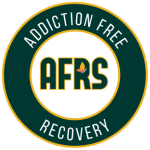Ketamine is one of the potent anesthetic drugs that have been used for medicinal and recreational purposes. Although it is useful for some medical procedures prescribed for depression, the anxiety about its abuse potential mounts.
Ketamine detox must be administered to those individuals who have developed dependency or addiction to the drug. In that case, knowing the detox process, its timeline, and how your insurance might cover treatment is highly essential if you or someone in your life is suffering from addiction to ketamine.
How to Detox From Ketamine Safely
Ketamine detoxification involves medical and psychotherapeutic support. Professionals should always perform a detox as this could be very risky, especially when self-treated. Detoxification from home is not advisable as withdrawal symptoms are dangerous, and the chances of something going wrong are much more significant.
Professional Detox Vs. At-Home Detox
One of the earliest decisions when you or your loved one is trying to detox from ketamine is whether this should be done at home or in a professional setting. Ideally, detoxification from ketamine should take place in a controlled environment where medical professionals can be available to help manage symptoms and ensure safety.
Home detox is tempting because it appears convenient and private, but it is dangerous. Detoxing from ketamine causes complications such as severe craving, dehydration, anxiety, and in extreme cases, conditions that can be life-threatening. Professional detox centers offer a setting where the withdrawal symptoms are managed and relapse prevented under medical supervision.
In addition to physical care, doctors can provide therapy, counseling, and support needed for recovery from ketamine abuse. Detoxification might involve drugs, relief for withdrawal symptoms, and any other treatment that should ensure the safe removal of the drug from the body.
Common Treatment Approaches for Detoxing from Ketamine
When you visit a detox center, the approach given to you about the treatment process may range from medication and therapy to even emotional support. It is a detoxing method for everyone. These are some very common detoxing approaches followed:
- Medication-Assisted Detox. Some medications are given to manage withdrawal symptoms. These may include anti-anxiety medication, antidepressants, and sleeping aids to manage insomnia, restlessness, and mood swings.
- Cognitive Behavioral Therapy (CBT). Another extremely common therapeutic intervention is Cognitive Behavioral Therapy. This is where patients are motivated to work through the thoughts and behaviors associated with ketamine addiction. It can be provided within a whole treatment detoxification program involving emotional or psychological rehabilitation from drug addiction.

- Support Groups and Counseling. There’s group therapy, where there is social support through these therapies, and also individual counseling to go further into the causes of addiction. These treatments can be great for detoxing from ketamine as well as achieving sobriety in life.
How Does Detoxing From Ketamine Work?
Detoxing from ketamine means the complete removal of the drug from the body. In this case, that can take several days to weeks, depending on the usage history of an individual. Ketamine works as a dissociative anesthetic, this makes the interaction of detoxification difficult with the brain.
The Role of the Liver and Kidneys in Ketamine Detox
Ketamine is primarily metabolized by the liver but is excreted by the kidneys. From the time of entry into the body, the drug becomes metabolized and transforms into a few metabolites that continue to reside in the system for a certain period. This process of detoxification entails these organs functioning in tandem and attempting to eliminate ketamine and its metabolites from the body.
Detoxing from ketamine involves an increased activity of the liver and kidneys as it means that there is a higher demand for metabolizing and expelling the substance. The detoxification duration is subjective but depends on the time an individual has used ketamine, the frequency, and even the quantity used. It may take protracted durations for some as the body continues to eliminate the substance from its system.
Withdrawal Symptoms When Detoxing From Ketamine
These would encompass the psychological as well as the physical withdrawal symptoms of detoxing from ketamine. The time used and the amount used in a day would determine the severity and duration of the symptoms. Common withdrawal symptoms include:
| Psychological Symptoms | Physical Symptoms |
| FearlessDepressionParanoiaCravings for ketamineDifficulty focusing | FatigueVomitingPerspirationMuscle painDifficulty sleeping |
While the detoxification process is very uncomfortable, one always needs to remember that these symptoms are only temporary. Detoxing from ketamine can be relatively safe and manageable when done under proper medical supervision. The psychological aspects of addiction are equally important and require adequate support and counseling.
How Long Does Ketamine Detox Take?
The detoxing ketamine period may vary in length. While some individuals may only suffer from minor withdrawal symptoms for a few days, others may have to wrestle with them for weeks. The detox can last between 5 and 14 days.
Factors That Impact the Duration of Detox
Frequency of Use | The more frequent the use of ketamine by a person, the longer it will take to detox. A frequent user of ketamine will take longer compared to someone who rarely uses it, and so the body will take longer to detoxify. |
Dosage | A higher dosage of ketamine takes a longer time to be expelled from the body system. If a person is using immense amounts of ketamine, their detox period will be longer. |
| Individual Health | General health, largely organ functions of the liver and kidneys, is the other critical aspect of detox. More so, individuals whose organs malfunction will have a slow detox process. |
Psychological Factors | When a person does self-medication using the ways of ketamine for whatever cause, which is generally a psychological complaint, it may take them longer to detox psychologically as well, when both his body and head are sick. |
What to Expect During the Detox Timeline
- Days 1-3. Most patients will begin to experience withdrawal symptoms, which may include fatigue, anxiety, and sweating.
- Day 4-7. Symptoms tend to reach a peak within the withdrawal process. Common physical symptoms include muscle aches, nausea, etc.
- Days 8-14. Most people begin to feel better, though psychological symptoms such as cravings or mood swings may persist for weeks.
It would be during this acute detox stage that individuals may be stepping into a phase of emotional adjustment. Here, sobriety is sustained, and simultaneously, underlying mental health problems that are the cause of ketamine use are worked upon as well.
Does Insurance Cover Ketamine Detox?
The first thing that people who seek to detox from ketamine want to know is if their insurance will cover the detox process. Fortunately, most insurance policies, whether private or Medicaid, have coverages for detoxification or addiction treatment programs.
Types of Insurance That May Cover Ketamine Detox
- Private Health Insurance. Most private health insurance plans carry provisions for substance abuse treatment benefits with detox included, depending on the plan. Detox programs either call for inpatient or outpatient services under these plans.
- Medicaid. This includes Medicaid, the public health insurance for lower-income individuals, which funds detoxification programs involving ketamine and other drugs.
- Employer-Sponsored Insurance. Others, which provide employer-sponsored plans, offer treatment for addiction and detox services. Their coverage may be different so one can only check up on your plan.
How to Verify Your Insurance Coverage for Ketamine Detox
To verify coverage for ketamine detox, it is best to contact the insurance provider directly. Here’s how you can do this:
- Call the Insurance Provider. Ask if they have particular coverage for ketamine-assisted detox treatment. Understand the terms.
- Understand the Terms. Be sure to ask about deductibles, copayments, and what type of treatment they will be paying for.
- Get Pre-Authorization. Depending on detox services, your insurance might require or not require a procedure of pre-authorization.
- Find a Detox Center That Accepts Your Insurance. After you get verified that there is detox coverage available with your insurance, you may find an in-network detox center.
If you or someone you love is thinking about getting clean and detoxing from ketamine, reach out to the professional staff of a detox center for assistance. Reaching out to a detox center today could be your first step toward better health and wellness.

Detoxing from ketamine can be hard, but if you look for the right kind of care and support, you might be able to regain control of your life over time. Contact us today to learn more about how we can help you detox from ketamine and walk you through every step of recovery.
FAQ’s
- What are the symptoms of ketamine withdrawal?
Withdrawal symptoms include fatigue, muscle pain, nausea, anxiety, depression, and cravings. Severity varies based on use patterns.
- How long does it take to detox from ketamine?
Ketamine detox typically takes 5 to 14 days, depending on use frequency and health factors.
- Can I detox from ketamine at home?
Detoxing at home is not recommended due to potential risks. Professional supervision is advised for safety.
- Does insurance cover ketamine detox treatment?
Many insurance plans, including Medicaid, cover ketamine detox. Check with your provider for specific coverage details.
- What’s the next step after ketamine detox?
After detox, ongoing therapy and support are crucial to address the causes of addiction and maintain long-term recovery.


























